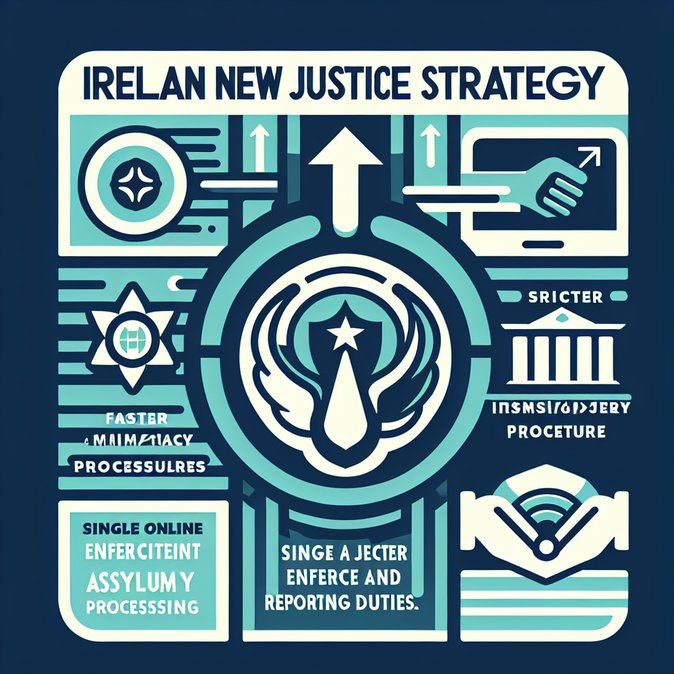
The Irish Department of Justice, Home Affairs and Migration has released its Statement of Strategy 2025-2028, outlining a wholesale overhaul of the State’s immigration and asylum systems. Minister Jim O’Callaghan said the three-year plan seeks to create “a firm but fair” framework that supports economic growth while protecting Ireland’s international obligations. Key goals include a new International Protection Bill to accelerate first-instance asylum decisions to nine months, expansion of e-government tools for visa and residence applications, and full civilianisation of immigration registration nationwide.
The Strategy puts business immigration front and centre. The Department promises to digitise Critical Skills and General Employment Permit processes, cut average processing times to four weeks, and introduce a single online portal linking the Department of Justice, Revenue, and the Department of Enterprise. This is designed to give multinationals clarity about talent planning while reducing compliance burdens for HR teams.
![Justice Department unveils 2025-2028 Strategy with major immigration reforms]()
On border management, the document commits to implementing the EU Migration & Asylum Pact, including new ‘border procedures’ at ports and airports that will triage manifestly unfounded claims within 12 weeks. To support this, a dedicated Border Procedures Unit will be established at Dublin Airport and Rosslare Europort, staffed jointly by Immigration Service Delivery (ISD) officers and An Garda Síochána.
The Strategy also signals tougher enforcement. A Returns Directorate, modelled on counterparts in the Netherlands and Sweden, will be set up to increase the number of failed asylum seekers returned each year. At the same time, migrant-support NGOs welcomed the document’s pledge to provide legal aid earlier in the process and to expand integration supports.
For employers the message is clear: faster, fully digital work-authorisation channels are on the way, but companies will also be expected to meet stricter labour-market-testing rules and to file annual diversity reports. The Department plans quarterly stakeholder fora with industry to ensure the reforms land smoothly in the tight labour market of 2026-2028.
The Strategy puts business immigration front and centre. The Department promises to digitise Critical Skills and General Employment Permit processes, cut average processing times to four weeks, and introduce a single online portal linking the Department of Justice, Revenue, and the Department of Enterprise. This is designed to give multinationals clarity about talent planning while reducing compliance burdens for HR teams.

On border management, the document commits to implementing the EU Migration & Asylum Pact, including new ‘border procedures’ at ports and airports that will triage manifestly unfounded claims within 12 weeks. To support this, a dedicated Border Procedures Unit will be established at Dublin Airport and Rosslare Europort, staffed jointly by Immigration Service Delivery (ISD) officers and An Garda Síochána.
The Strategy also signals tougher enforcement. A Returns Directorate, modelled on counterparts in the Netherlands and Sweden, will be set up to increase the number of failed asylum seekers returned each year. At the same time, migrant-support NGOs welcomed the document’s pledge to provide legal aid earlier in the process and to expand integration supports.
For employers the message is clear: faster, fully digital work-authorisation channels are on the way, but companies will also be expected to meet stricter labour-market-testing rules and to file annual diversity reports. The Department plans quarterly stakeholder fora with industry to ensure the reforms land smoothly in the tight labour market of 2026-2028.


